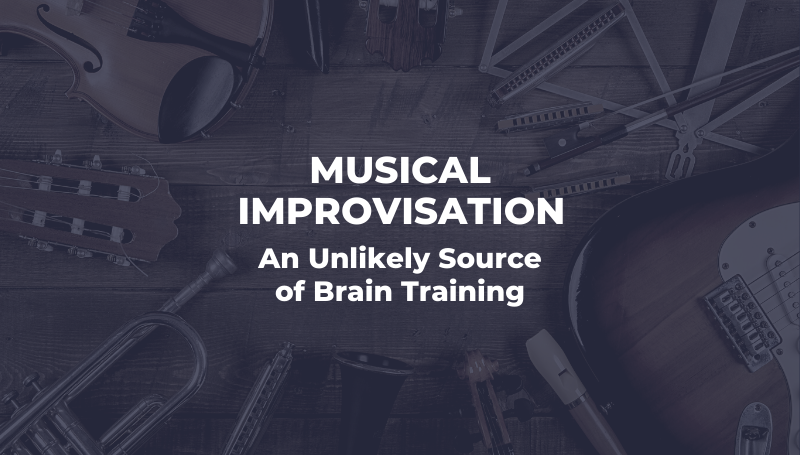Musical Improvisation—An Unlikely Source of Brain Training

Neuroscientists have long been interested in the benefits of musical training on brain function. But a recent study at Columbia University shows that musicians who improvise are not only better musicians, their brains actually function differently than the brains of musicians with little improvisational experience. The study concluded that musicians who improvised “showed a pattern of electrical activity distinct from non-improvising musicians.” This electrical activity is believed to be independent of how often musicians practice; instead, it reflects the way they practice.
Why should this be interesting to physicians? Because improvisation is not limited to music—it can make an appearance in your daily life, your practice, and even during your study sessions. Improvisation will often take the form of creative problem solving in the face of an obstacle. The trick to creative solutions is understanding the rules of substitution: In music, which chord can function in place of another? In cooking, what do you use when you’re out of a needed ingredient? In medicine, how do you adjust when a patient does not respond to standard treatment?
Biomedical engineer and senior author of the study, Paul Sajda, also conducted a 2015 EEG study of varsity baseball players showing what happens in the brains of players distinguishing a fast ball from a curve ball and responding accordingly within a split-second window. What the musicians and ball players in these studies have in common is daily practice responding to the unexpected.
If mixed practice improves our decision-making when it comes to musical chords and baseball pitches, isn’t it logical to apply this methodology to the way we learn medicine? A learning practice called “interleaving,” where you cycle study among a handful of topics rather than focusing on one at a time, has been shown to improve recall by up to 76%. It seems that variety trains the brain to anticipate, compare, and contrast, providing a rich repertoire of knowledge to draw from in daily practice.
Do you play a musical instrument, and if so, how does it impact your practice of medicine? Do you see any correlation between musical improvisation and patient care?
Tell us your thoughts below!


